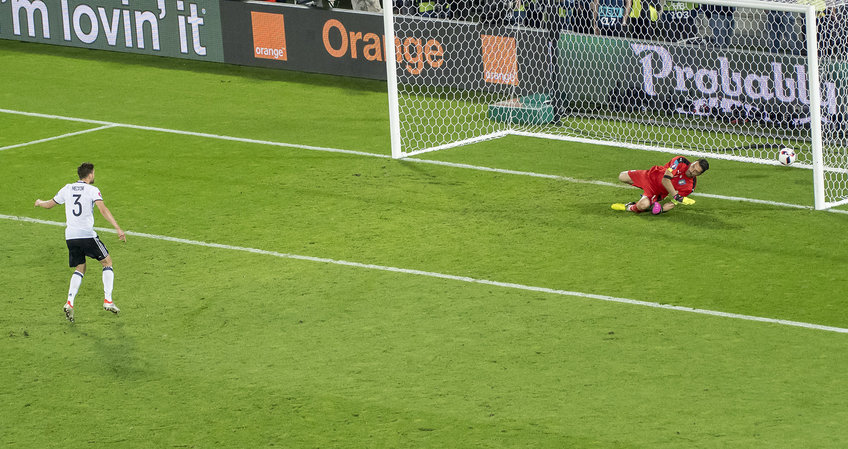Coin toss influences outcome of penalty shootouts
The right to determine whether to go first or second in a penalty shoout improves the chances of winning
In the knockout phase of the European Championship, some matches were decided in a penalty shoot-out. There has been much discussion about whether the sequence in which the teams take their penalties has an influence on the outcome of the match. A new study has now tried answering this question. As Matthias Sutter from the Max Planck Institute for the Study of Collective Goods in Bonn together with three colleagues from Düsseldorf found out, it is not the sequence, but the result of the coin toss before the penalty shootout, that matters.

"Heads or tails"? is the question before every penalty shoot-out. The two team captains have to bet on the outcome of the referee's coin toss. The winning captain can choose whether his team takes the first penalty or goes second. It is often assumed that being able to go first conveys an advantage. This is why in less prominent tournaments, the European football association UEFA has already tested other procedures to take pressure off the players whose turn it is to shoot second.
Many team captains do not seem to see this so critically. An analysis of 207 penalty shootouts in 14 international football tournaments between July 2003 and August 2017, including the World and European Championships, found that only 56 percent of all captains opted to go first, while the remaining 44 percent sent their keepers into the goal first. Shooting second could be a strategic decision, the researchers suggest, if the team's own goalkeeper is considered better than that of the other team and more likely to make a save.
As a result, the evaluation confirms earlier studies, according to which the decision to take the first penalty kick does not bring an advantage. In the games analysed, the winning frequency of the teams kicking first was only about 51 per cent. The result of the coin toss, on the other hand, made a difference: about 60 percent of the teams whose captains won the draw were able to win the subsequent penalty shootout. This is significantly better than the 50 percent chance one might expect if the captains' decision did not matter.
So it pays to keep a close eye on the outcome of the coin toss before a penalty shootout. The outcome of the tournament could depend on it.












